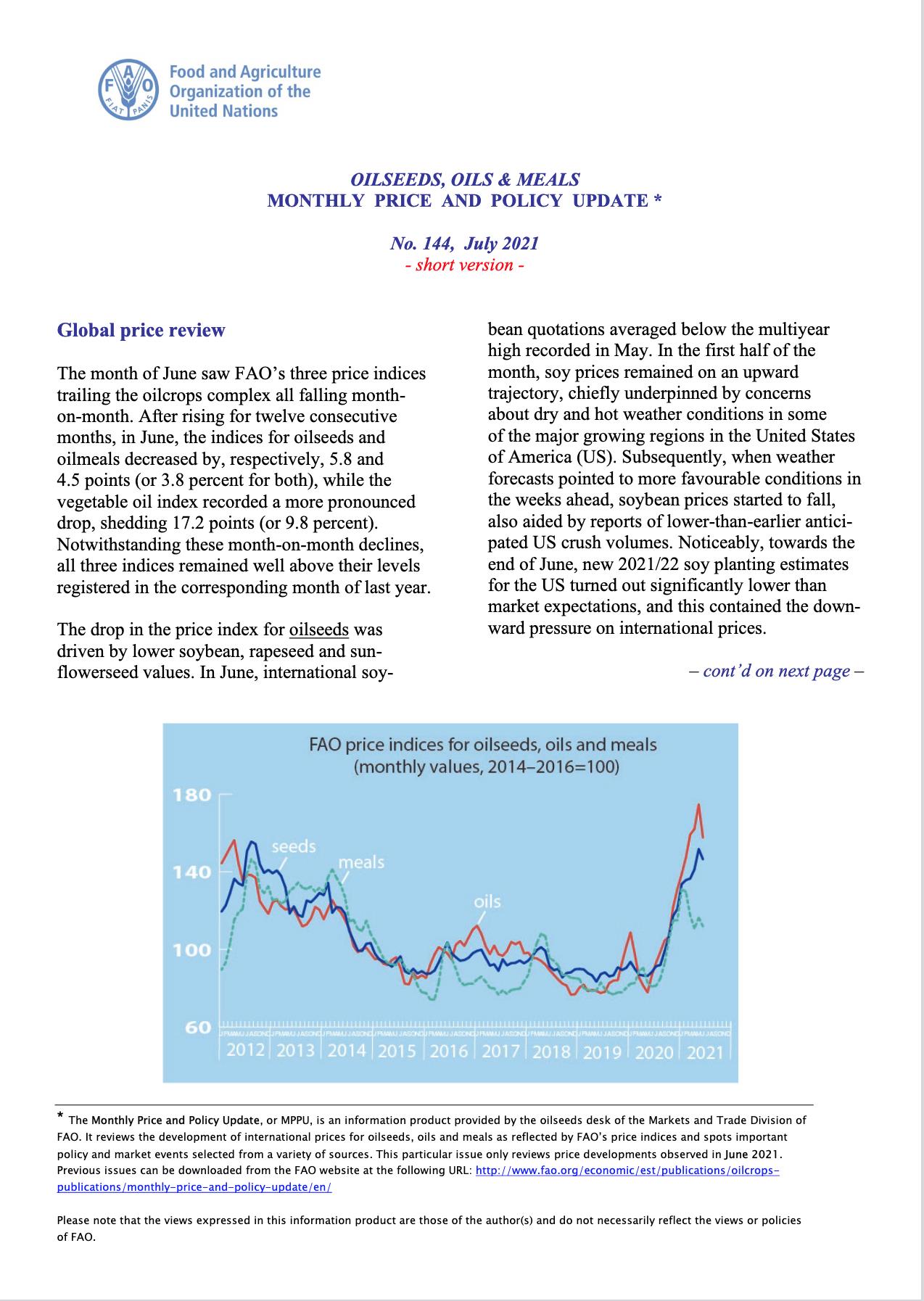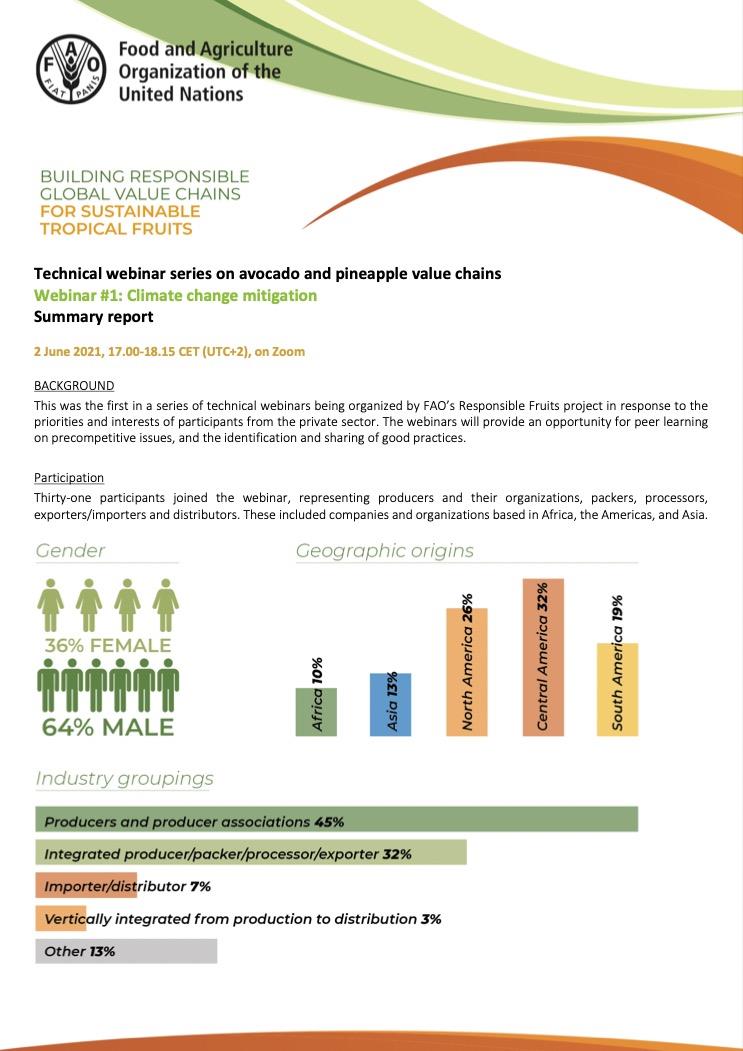
Webinar #1: Climate change mitigation, 2 June 2021
03/08/2021
This was the first in a series of technical webinars being organized by FAO’s Responsible Fruits project in response to the priorities and interests of participants from the private sector. The webinars will provide an opportunity for peer learning on precompetitive issues, and the identification and sharing of good practices
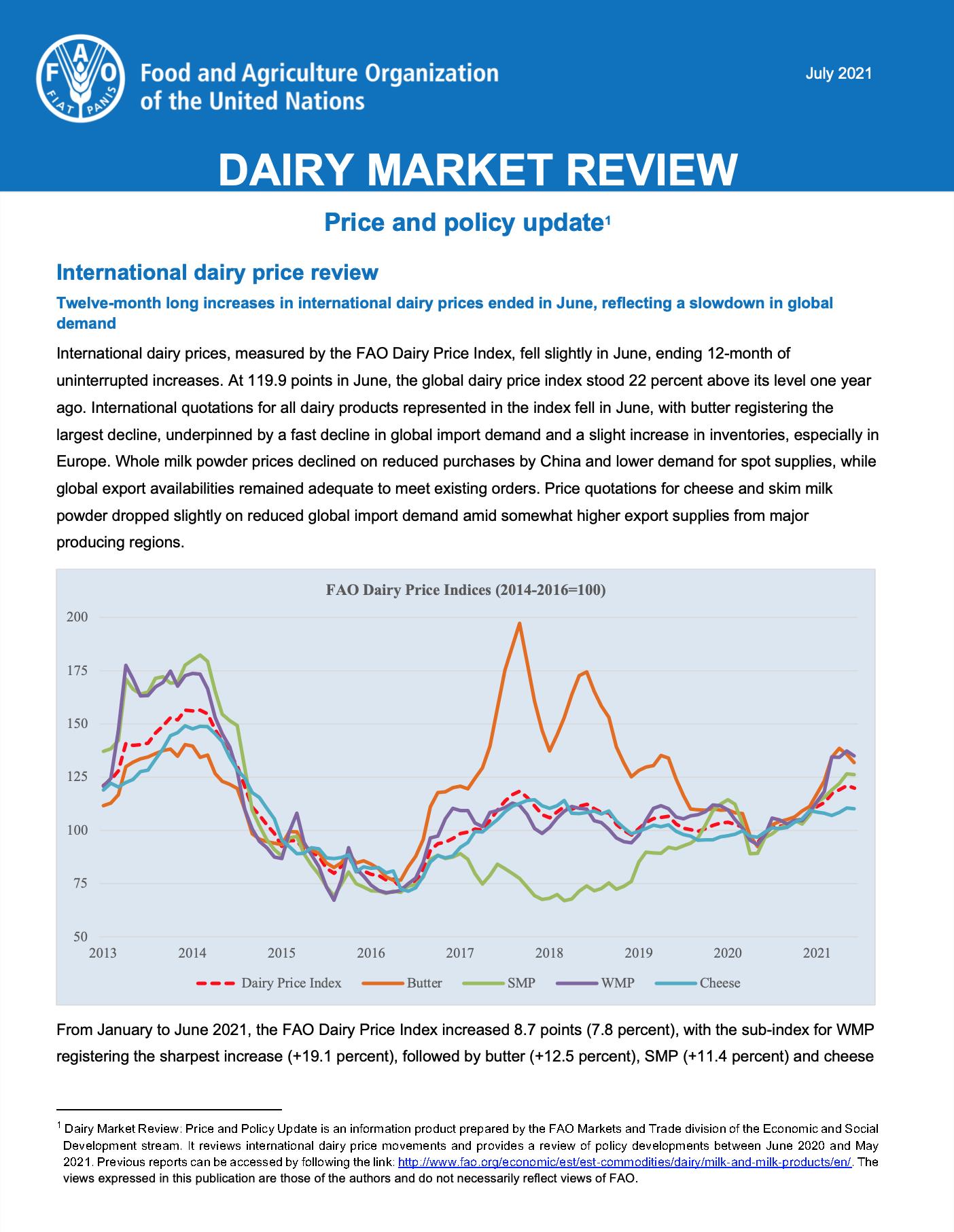
Dairy market review - Price and policy update - July 2021
16/07/2021
International dairy prices, measured by the FAO Dairy Price Index, fell slightly in June, ending 12-month of uninterrupted increases. At 119.9 points in June, the global dairy price index stood at 22 percent above its level one year ago. International quotations for all dairy products represented in the index fell in June, with butter registering the highest decline, underpinned by a faster decline in global import demand and a slight increase in inventories, especially in Europe.
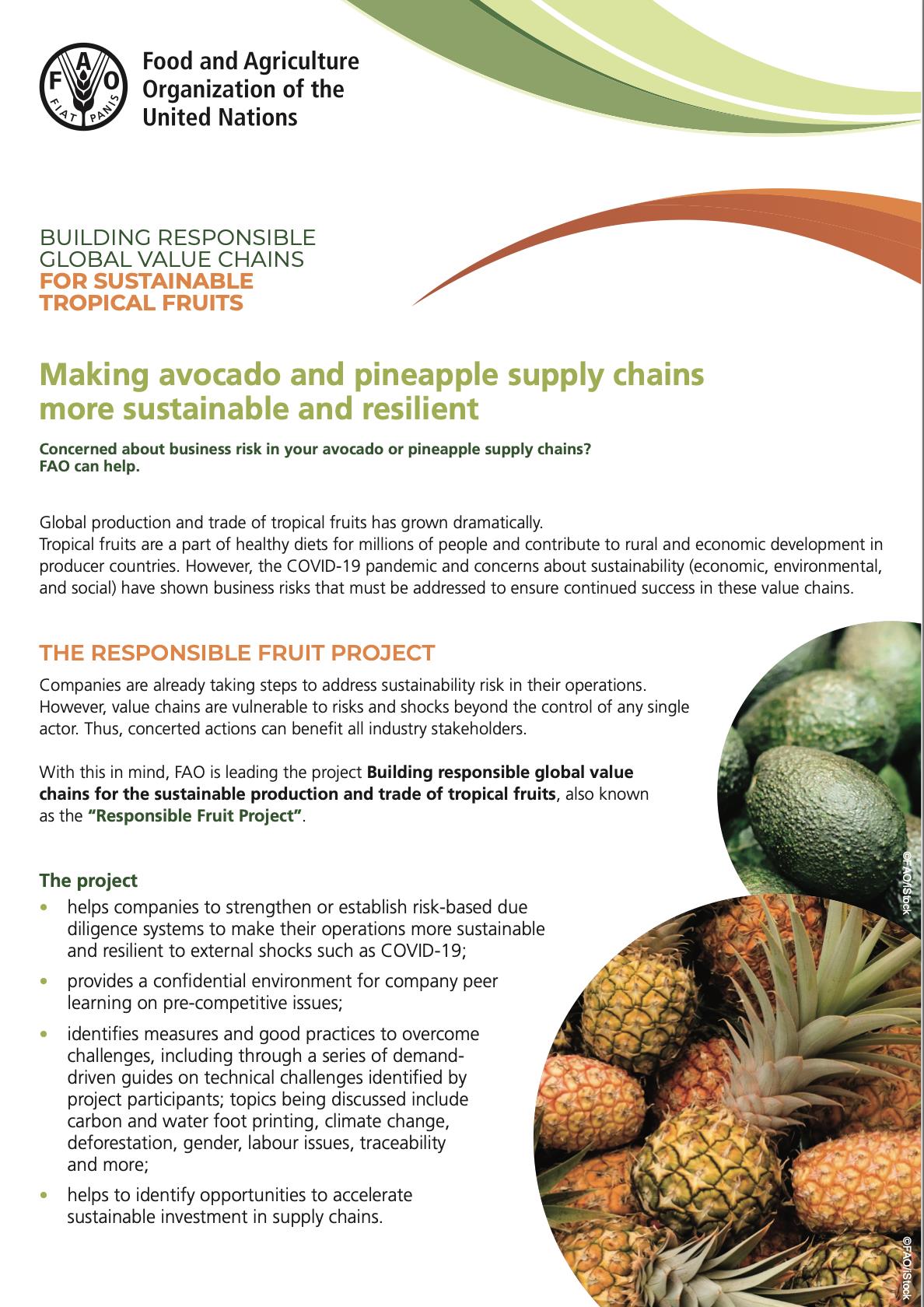
Making avocado and pineapple supply chains more sustainable and resilient
15/07/2021
Concerned about business risk in avocado or pineapple supply chains? FAO can help. Global production and trade of tropical fruits have grown dramatically. Tropical fruits are a part of healthy diets for millions of people and contribute to rural and economic development in producer countries. However, the COVID-19 pandemic and concerns about sustainability (economic, environmental, and social) have shown business risks that must be addressed to ensure continued success in these value chains. Thus, FAO is leading the project “Building responsible global value chains for the sustainable production and trade of tropical fruits”. This flyer introduces the project to the private sector, including companies, producer organizations, trade associations, and industry initiatives. It summarizes how the project will help companies operating in avocado and pineapple supply chains to make their operations more sustainable and resilient. This includes strengthen or establish risk-based due diligence systems; providing a confidential environment for peer learning on pre-competitive issues; developing a series of demand-driven guides on technical challenges; and identifying opportunities to accelerate sustainable investment in these supply chains.
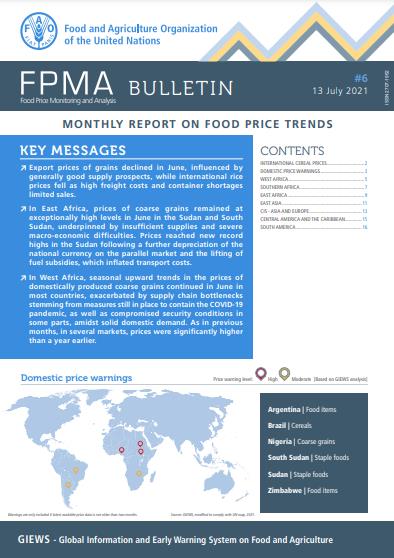
Food Price Monitoring and Analysis (FPMA) Bulletin #6, 13 July 2021
13/07/2021
Export prices of grains declined in June, influenced by generally good supply prospects, while international rice prices also fell as high freight costs and container shortages limited sales. In East Africa, prices of coarse grains continue at exceptionally high levels in the Sudan and South Sudan, underpinned by insufficient supplies and severe macro-economic difficulties. Prices reached new record highs in the Sudan following a further depreciation of the national currency on the parallel market and the lifting of fuel subsidies, which inflated transport costs. In West Africa, seasonal upward trends in prices of domestically produced coarse grains continued in June in most countries, exacerbated by supply chain bottlenecks stemming from measures still in place to contain the COVID-19 pandemic, as well as compromised security conditions in some parts, amidst solid domestic demand. As in previous months, in several markets, prices were significantly higher than a year earlier.
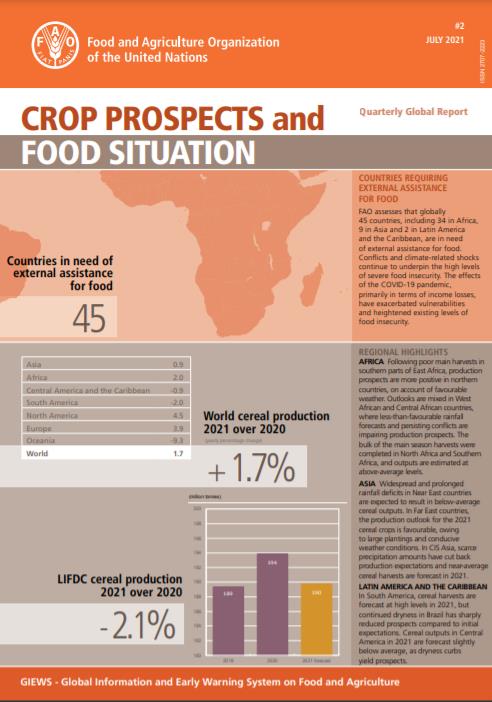
Crop Prospects and Food Situation - Quarterly Global Report, No. 2, July 2021
08/07/2021
FAO assesses that globally 45 countries, including 34 in Africa, 9 in Asia and 2 in Latin America and the Caribbean, are in need of external assistance for food. Conflicts and climate-related shocks continue to underpin the high levels of severe food insecurity. The effects of the COVID-19 pandemic, primarily income losses, have exacerbated vulnerabilities and heightened existing levels of food insecurity.
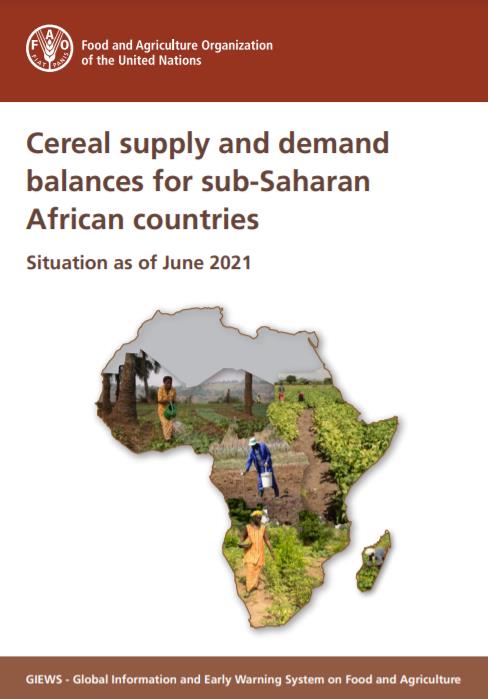
Cereal supply and demand balances for sub-Saharan African countries - No.2, July 2021
08/07/2021
The Global Information and Early Warning System on Food and Agriculture (GIEWS) continuously monitors crop prospects and food security situation at global, regional, national and sub-national levels and warns of impending food difficulties and emergencies. Established in the wake of the world food crisis of the early 1970s, GIEWS maintains a unique database on all aspects of food supply and demand for every country of the world.
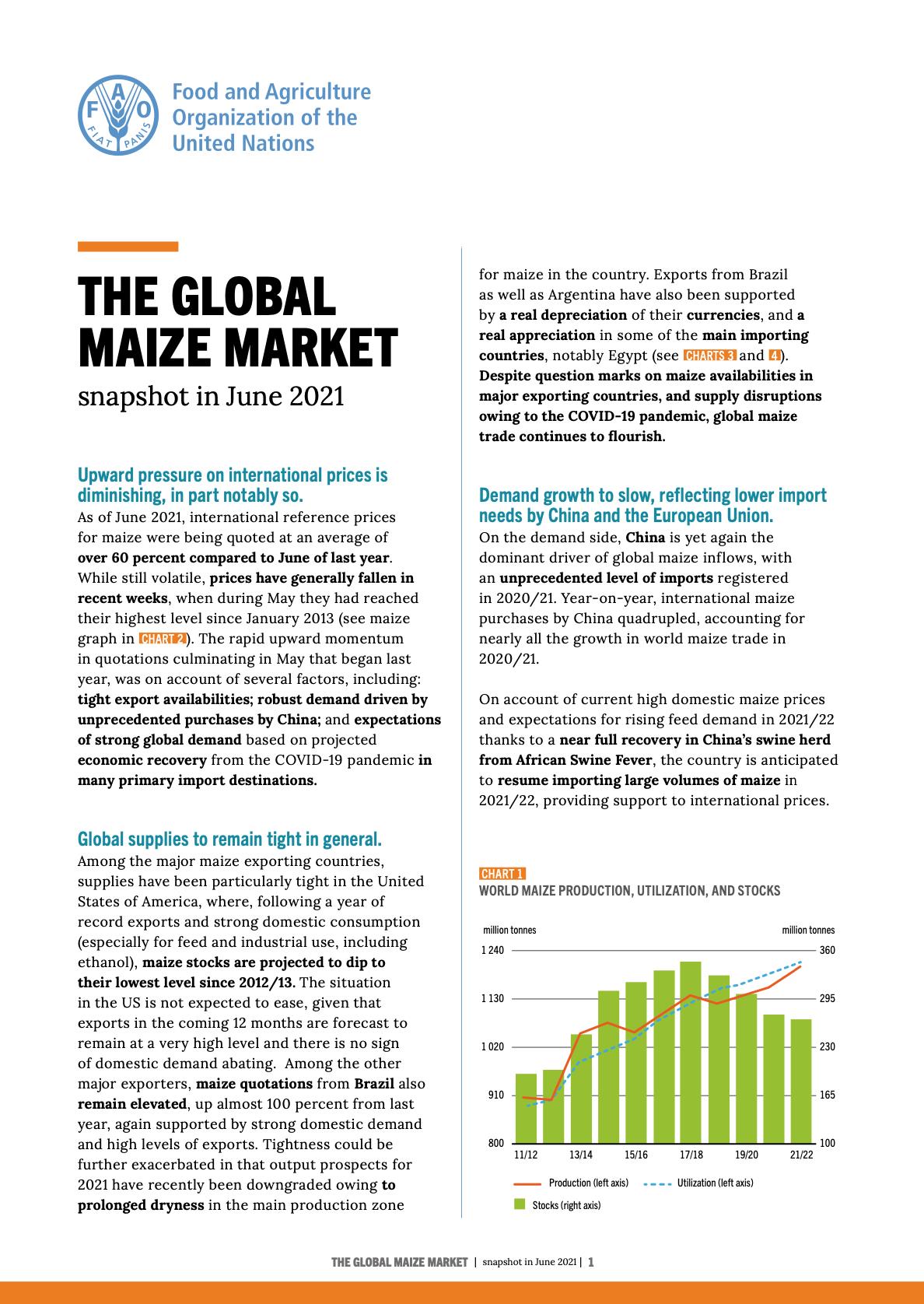
The Global Maize Market
06/07/2021
Upward pressure on international prices is diminishing, in part notably so. As of June 2021, international reference prices for maize were being quoted at an average of over 60 percent compared to June of last year. While still volatile, prices have generally fallen in recent weeks, when during May they had reached their highest level since January 2013. The rapid upward momentum in quotations culminating in May that began last year, was on account of several factors, including: tight export availabilities; robust demand driven by unprecedented purchases by China; and expectations of strong global demand based on projected economic recovery from the COVID-19 pandemic in many primary import destinations.

No. 37 COVID-19: Agricultural trade and policy responses during the first wave of the pandemic in 2020
05/07/2021
Measures adopted around the world to contain the COVID-19 outbreak helped curb the spread of the virus and lowered the pressure on health systems. However, they also affected the global trading system, and the supply and demand of agricultural and food products. In response to concerns over food security and food safety worldwide, many countries reacted immediately to apply policy measures aiming to limit potentially adverse impacts on domestic markets. Covering the first half of 2020, this policy brief provides an overview of short-term changes in policy measures related to agricultural trade that countries adopted in response to the pandemic.
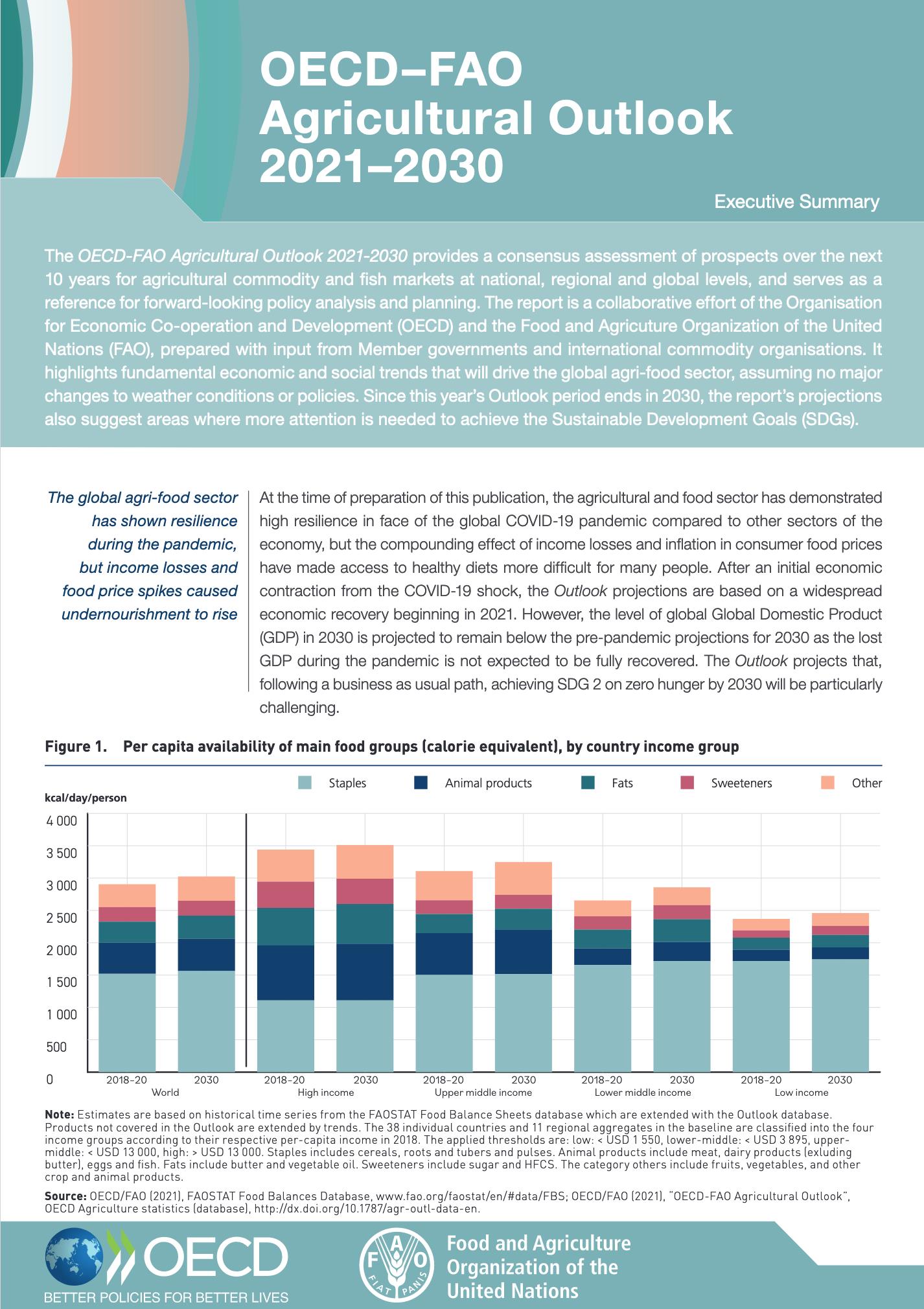
OECD-FAO Agricultural Outlook 2021–2030
05/07/2021
The Agricultural Outlook 2021-2030 is a collaborative effort of the Organisation for Economic Co-operation and Development (OECD) and the Food and Agriculture Organization (FAO) of the United Nations. It brings together the commodity, policy and country expertise of both organisations as well as input from collaborating member countries to provide an annual assessment of the prospects for the coming decade of national, regional and global agricultural commodity markets. The publication consists of 11 Chapters; Chapter 1 is about agricultural and food markets; Chapter 2 provides regional outlooks and the remaining chapters are dedicated to individual commodities.
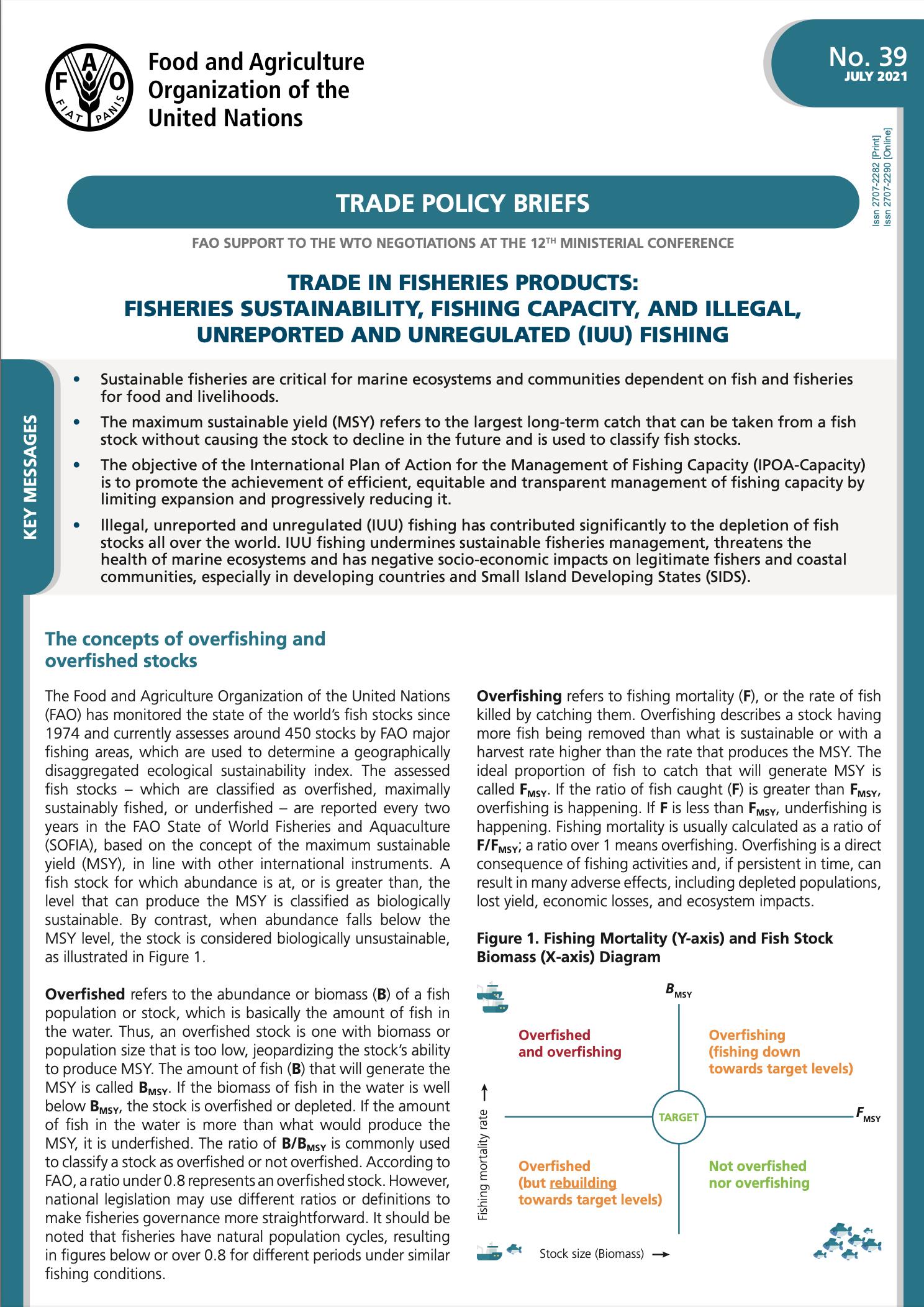
No. 39 Trade in fisheries products: fisheries sustainability, fishing capacity, and illegal, unreported and unregulated (IUU) fishing
05/07/2021
his policy brief provides an overview of the main fish pillars associated with the current WTO mandate on fisheries subsidies – overfishing and overfished stocks, capacity, and Illegal, Unreported, and Unregulated (IUU) fishing. It also addresses traditional scientific concepts like the Maximum Sustainable Yield (MSY) in determining overfishing, the main FAO instruments associated with capacity and combatting IUU fishing, and the Regional Fisheries Management Organization (RFMOs) and flag, port, and coastal States.
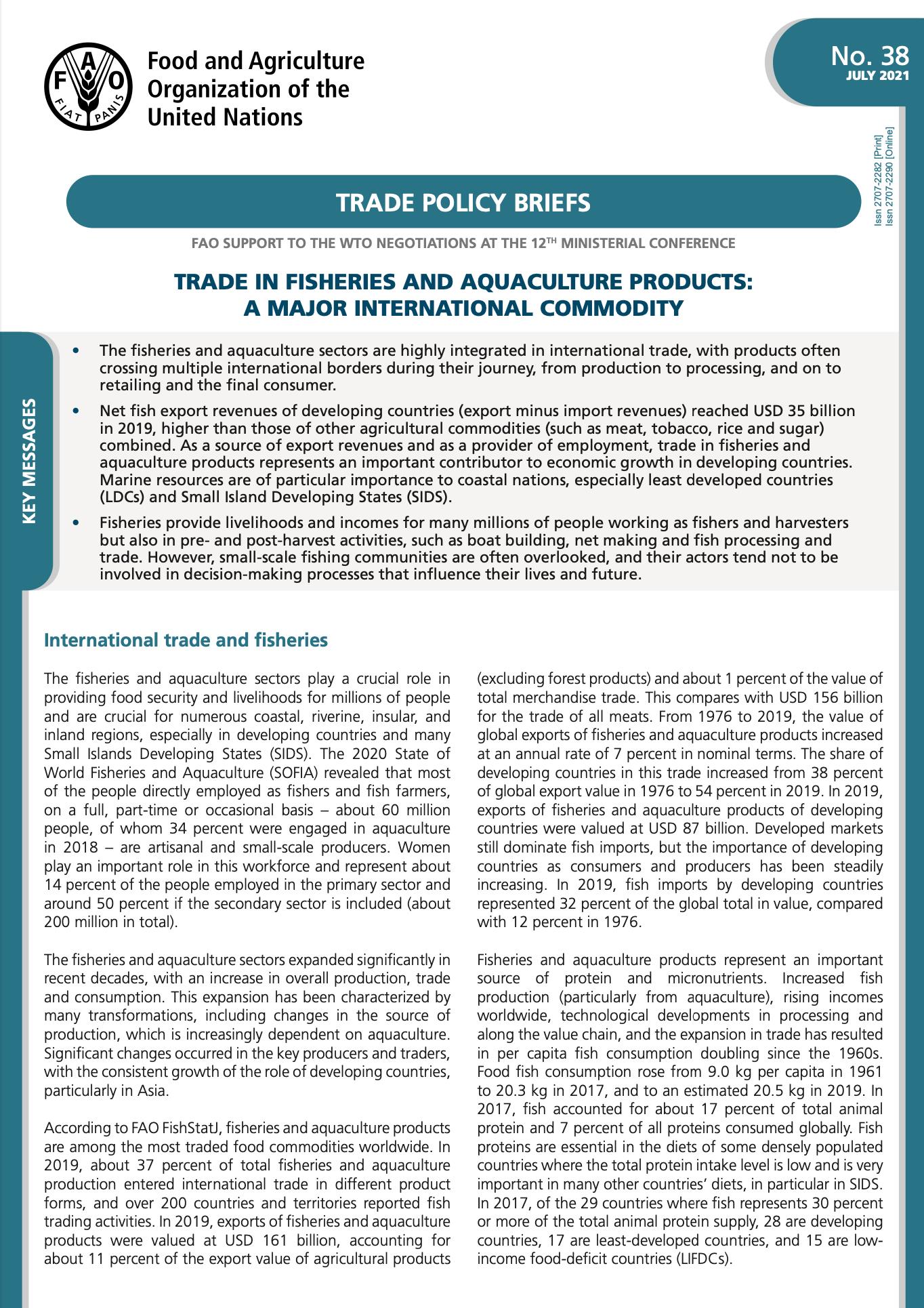
No. 38 Trade in fisheries and aquaculture products: a major international commodity
05/07/2021
This policy brief provides an overview of the latest statistic data on fisheries and aquaculture production and trade, highlighting the importance of international trade to many countries, particularly developing countries. It is also stressed the rank of fisheries and aquaculture trade in comparison with other animal proteins. Small-scale fisheries are also analyzed, including their singularity and characterization issues.
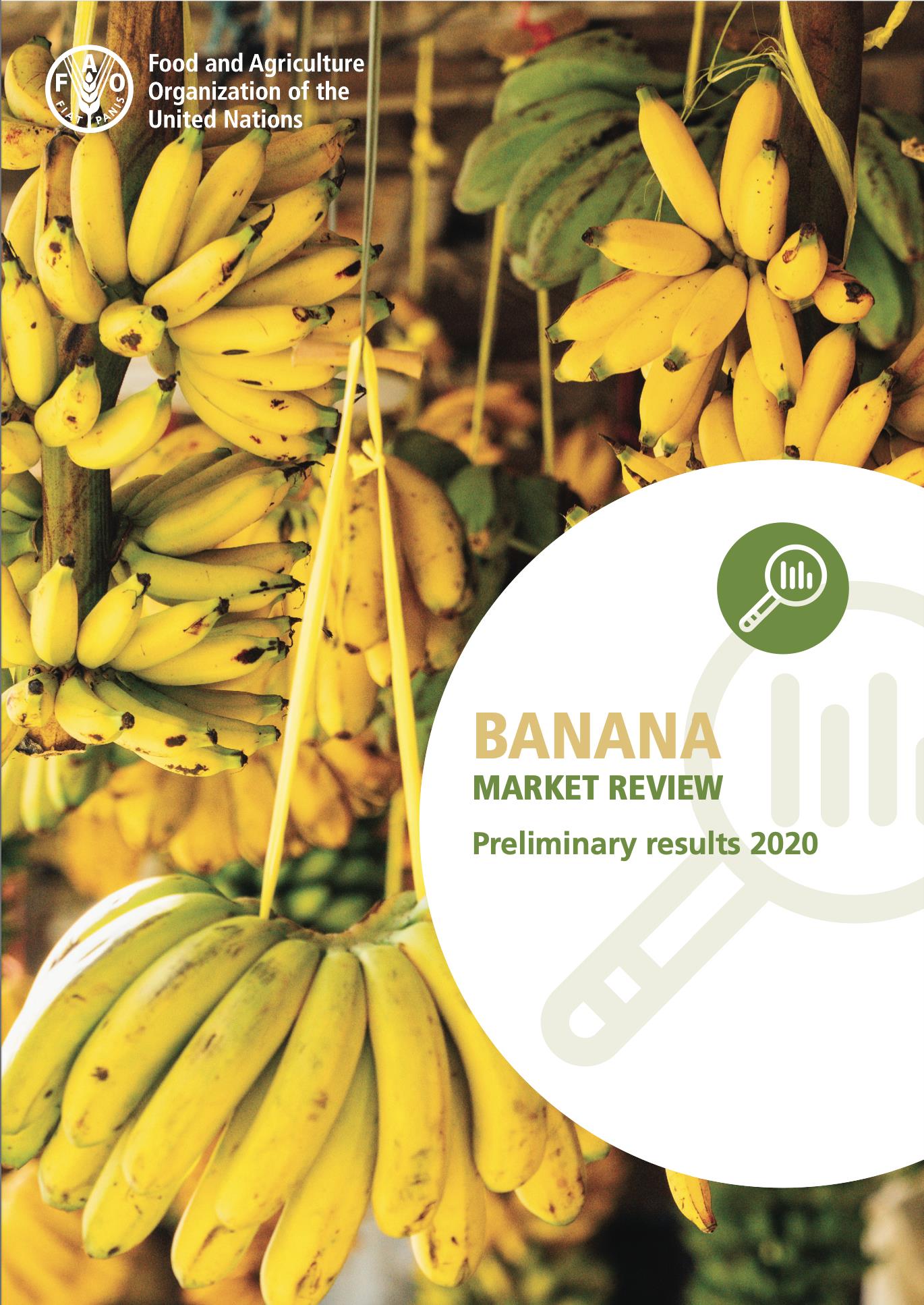
Banana Market Review - Preliminary results 2020
22/06/2021
The Banana Market Review is issued on an annual basis to Members and Observers of the Sub-Group on Bananas of the Intergovernmental Group on Bananas and Tropical Fruits, which is a subsidiary body of the Committee on Commodity Problems (CCP). This document provides preliminary estimates for the 2020 market situation for the banana commodity. Imports and exports statistical tables are included
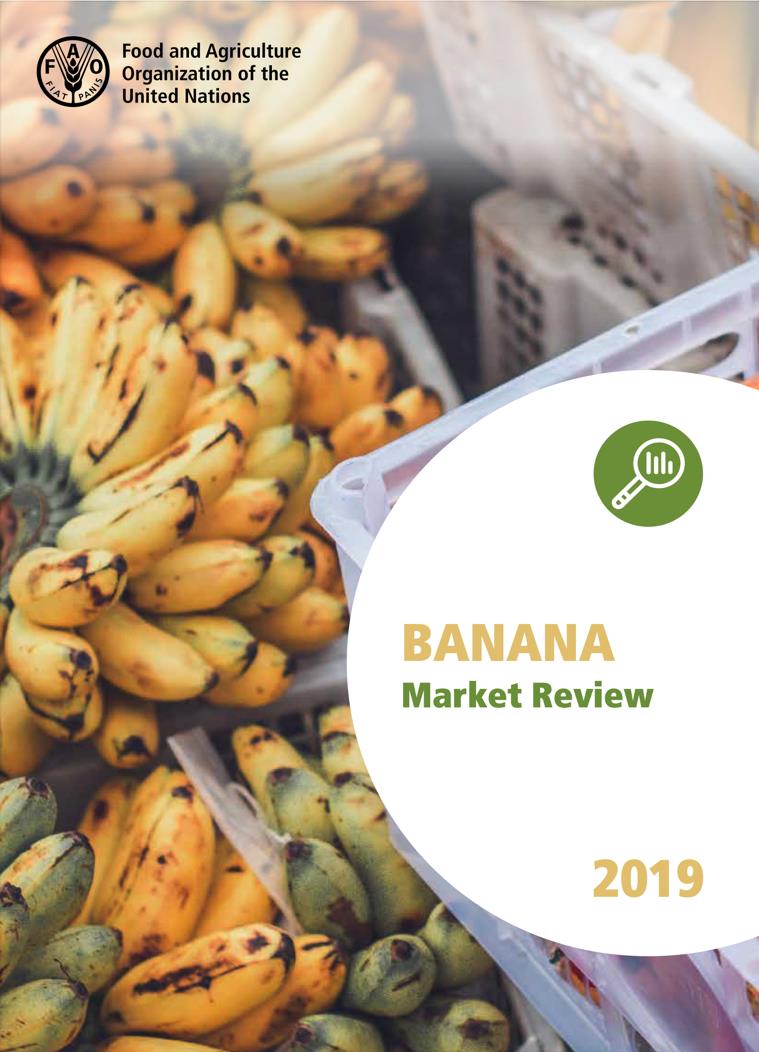
Banana Market Review Preliminary results 2019
22/06/2021
The Banana Market Review is issued on an annual basis to Members and Observers of the Sub-Group on Bananas of the Intergovernmental Group on Bananas and Tropical Fruits, which is a subsidiary body of the Committee on Commodity Problems (CCP). This document provides preliminary estimates for the 2020 market situation for the banana commodity. Imports and exports statistical tables are included
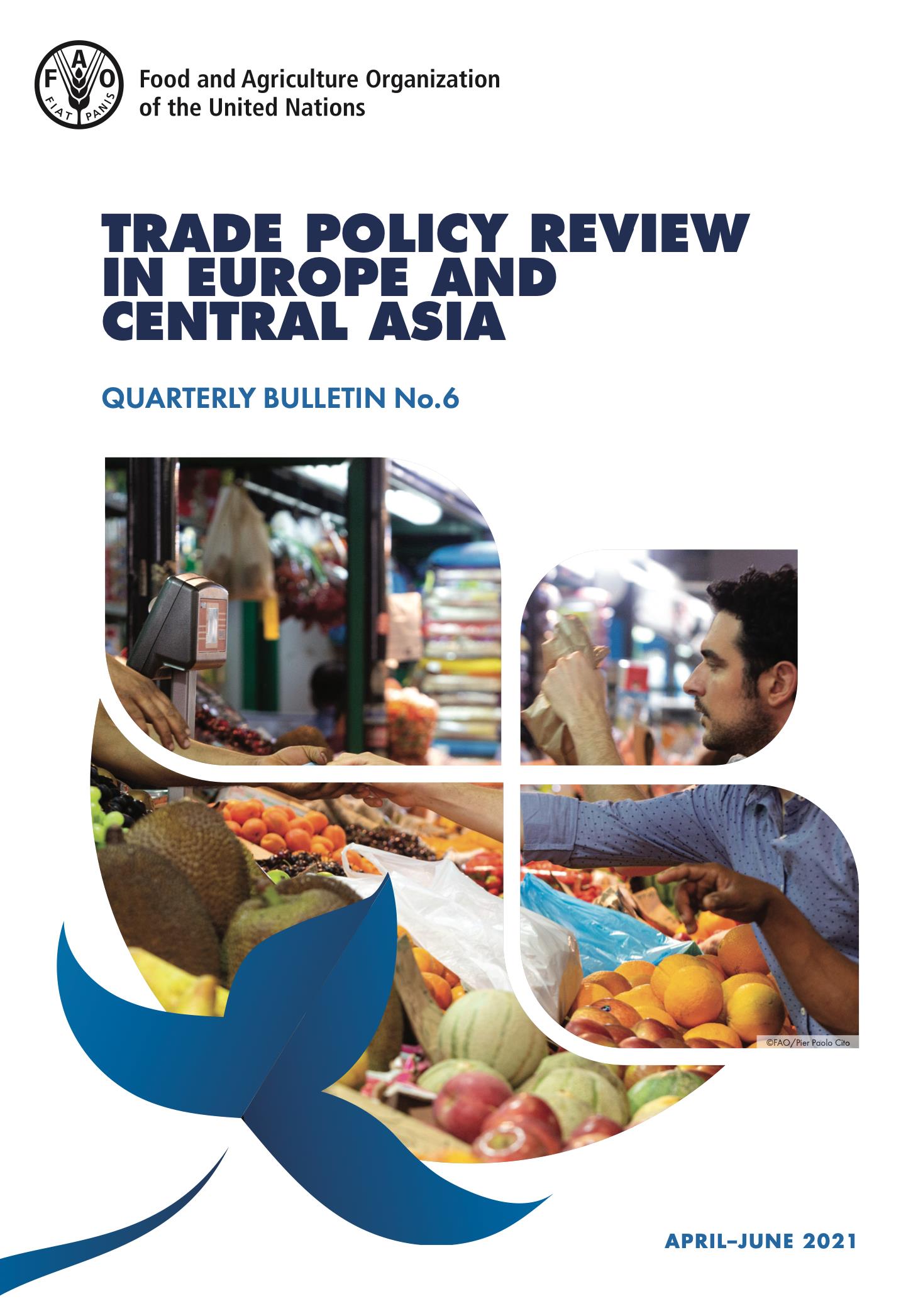
Trade Policy Review in Europe and Central Asia - Quarterly Bulletin No. 6
16/06/2021
This quarterly bulletin features agricultural trade policy changes in the region. It provides current trade measures, agreements, statistics and articles by experts covering trade-related issues in countries across the region, and it is sent to members of the Agricultural Trade Expert Network.
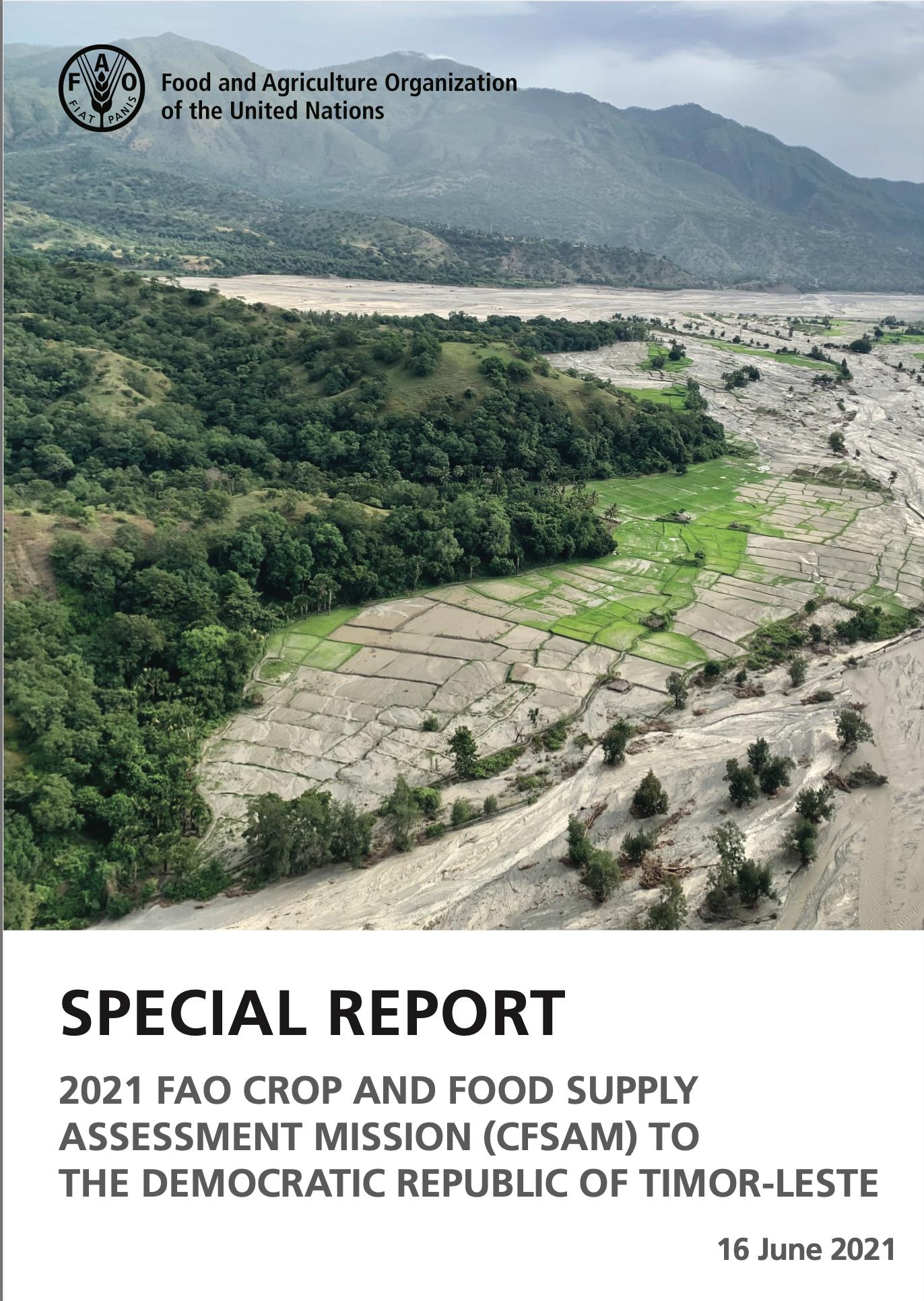
Special Report – 2021 FAO Crop and Food Supply Assessment Mission (CFSAM) to the Democratic Republic of Timor-Leste
16/06/2021
An FAO Crop and Food Supply Assessment Mission (CFSAM) visited all main food producing areas in Timor-Leste from 27 April to 9 May 2021 to estimate the 2021 crop production and the import requirements during the 2021/22 marketing year (April/March). The Mission’s aim was to provide an accurate picture of severity and extent of the shocks that affected the agriculture sector in 2021 and identify the country’s main agricultural support needs until the next harvest. In particular, as officially requested by the Ministry of Agriculture and Fisheries (MAF), the CFSAM assessed the impact of the tropical storm and floods as well as FAW and ASF outbreaks on the agriculture sector.
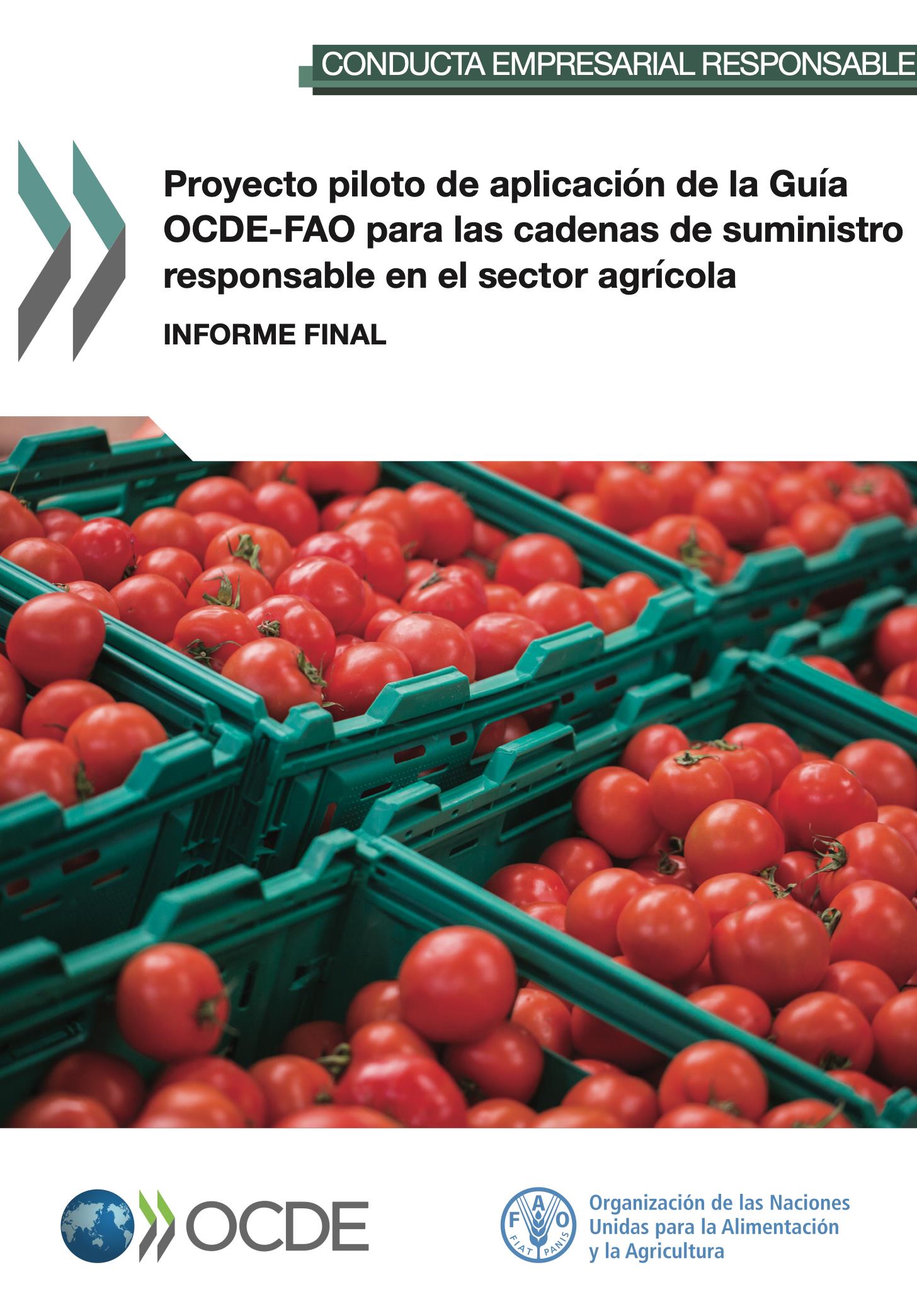
Proyecto piloto de aplicación de la Guía OCDE-FAO para las cadenas de suministro responsable en el sector agrícola
15/06/2021
Para apoyar la aplicación práctica de la Guía OCDE-FAO, a principios de 2018 la OCDE y la FAO lanzaron un proyecto de implementación piloto con más de treinta empresas e iniciativas industriales. Este informe final presenta los principales hallazgos del proyecto piloto. Resume las lecciones aprendidas, las buenas prácticas y los desafíos en la implementación de la debida diligencia de la cadena de suministro identificados por los participantes del proyecto piloto, y presenta recomendaciones y próximos pasos para las empresas y los responsables políticos. promover la adopción de las recomendaciones de la Guía OCDE-FAO en el sector agrícola.
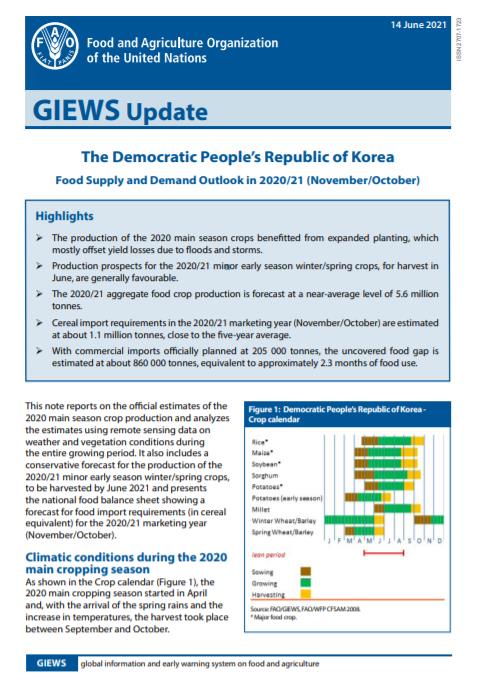
GIEWS Update - The Democratic People’s Republic of Korea, 14 June 2021
14/06/2021
The production of the 2020 main season crops benefitted from expanded planting, which mostly offset yield losses due to floods and storms. Production prospects for the 2020/21 minor early season winter/spring crops, for harvest in June, are generally favourable. The 2020/21 aggregate food crop production is forecast at a near-average level of 5.6 million tonnes. Cereal import requirements in the 2020/21 marketing year (November/October) are estimated at about 1.1 million tonnes, close to the five-year average. With commercial imports officially planned at 205 000 tonnes, the uncovered food gap is estimated at about 860 000 tonnes, equivalent to approximately 2.3 months of food use.
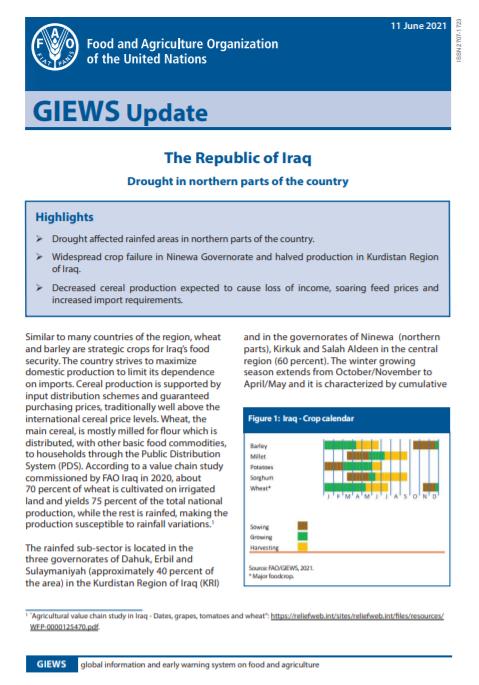
GIEWS Update - The Republic of Iraq, 11 June 2021
11/06/2021
Drought affected rainfed areas in northern parts of the country. Widespread crop failure in Ninewa Governorate and halved production in Kurdistan Region of Iraq. Decreased cereal production expected to cause loss of income, soaring feed prices and increased import requirements.

